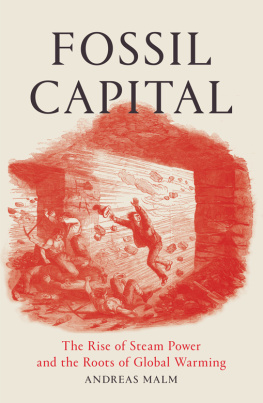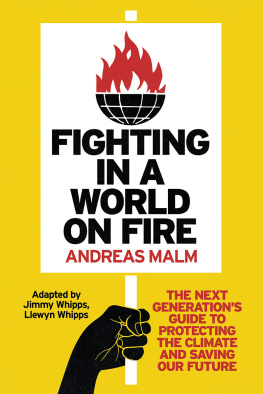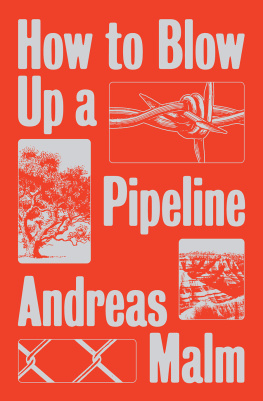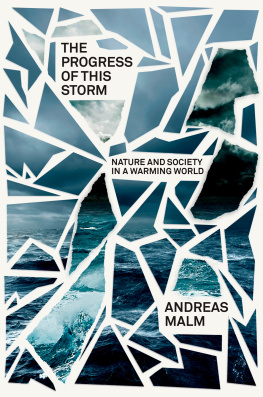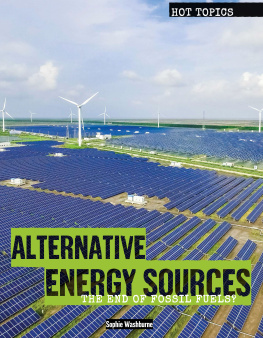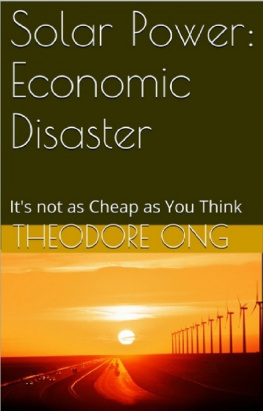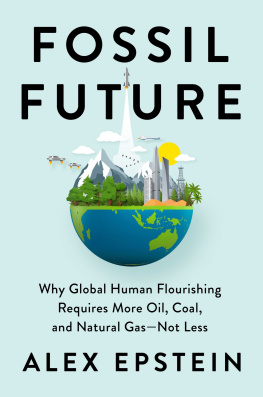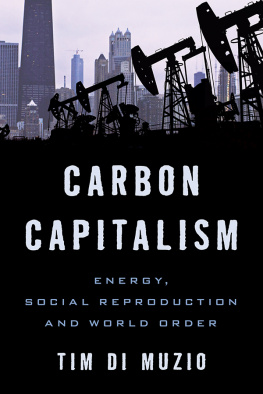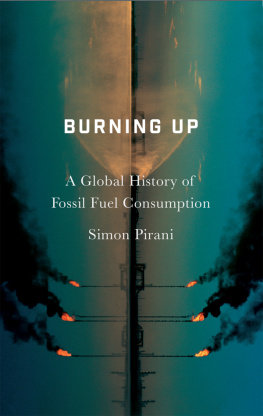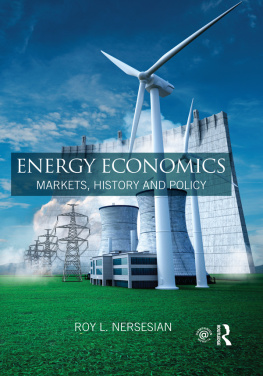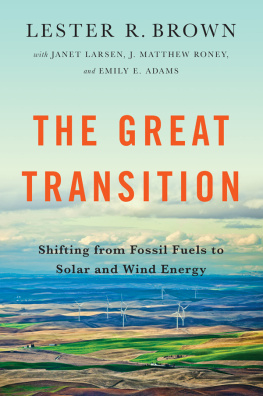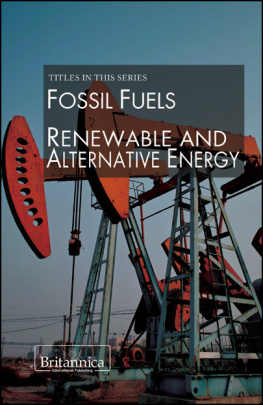In the Heat of the Past:
Towards a History of the
Fossil Economy
In those spacious halls the benignant power of steam summons around him his myriads of willing menials, and assigns to each the regulated task, substituting for painful muscular effort on their part, the energies of his own gigantic arm, and demanding in turn only attention and dexterity to correct such little aberrations as casually occur in workmanship.
Andrew Ure, The Philosophy of Manufactures (1835)
The chemical changes which thus take place are constantly increasing the atmosphere by large quantities of carbonic acid [i.e. carbon dioxide] and other gases noxious to animal life. The means by which nature decomposes these elements, or reconverts them into a solid form, are not sufficiently known.
Charles Babbage, On the Economy of
Machinery and Manufactures (1835)
Besides, what has your steam engine and your cast iron done for us? Not to mention the gas, whose frequent explosions threaten one day to blow up Babylon itself.
Anonymous worker in The Metropolitan,
Imprisonment for debt (May 1834)
G lobal warming is the unintended by-product par excellence. A cotton manufacturer of early nineteenth-century Lancashire who decided
But the environmentally concerned enquiry of the pioneer economist was instantly truncated, due to sheer lack of knowledge. Babbage was verging on uncharted territory. Instead, his book continued as one long encomium to the wonders of machinery first and foremost the check which it affords against the inattention, the idleness, or the dishonesty of human agents. In that turn of phrase, Babbage articulated a leitmotif of bourgeois thinking corresponding to the operating procedures of manufacturers, who fought the annoying idiosyncrasies of human workers precisely by installing ever more machinery impelled by ever more powerful steam engines, unsuspecting of any particular noxious effects. Those on the receiving end of that machinery had more reason to be afraid.
Now They Know What They Do
By now the science of the by-product is perfectly clear. It has been so, in its basic outlines, for roughly as long as capitalism has been free of really existing adversaries: in 1990, the Intergovernmental Panel on Climate Change (IPCC) submitted its first report on the likely fate of a warming world. The facts and projections served as the basis for the United Nations Framework Convention on Climate Change (UNFCCC), signed at the Earth Summit
How did we get caught up in this mess?
History under a Heavy Sky
In the first pages of his acclaimed textbook Political Ecology, Paul Robbins travels to Yellowstone National Park to observe what lies behind its veneer of pristine wilderness. To an untrained eye, the iconic features of the landscape might appear perfectly natural. In fact they are intensely produced. The native hunters that once roamed the land have been removed by fiat; wolves were first extinguished and then reintroduced. Managing authorities have alternated between culling elk populations and allowing them to explode, suppressing fires and permitting them to rip through the valleys and leave their mark on the biota. At every step, walking through forests and along rivers, sighting some animals and not others, Robbins discerns the effects of power struggles that have raged over the park: between the state and the native population, between hunters and environmentalists, hoteliers and scientists. Out of the raw material at hand, political actors have created the ecology of Yellowstone, often with chains of unintended consequences.
A traveller along the frontiers of climate change today not to speak of tomorrow might encounter a landscape even more thoroughly shaped by humans with power. Weather conditions, types of vegetation, entire biomes, even the sea itself might have fallen into place as a fallout of the combustion of fossil fuels. But where Robbins is able to trace a certain property of the Yellowstone landscape to a specific decision made in the past the absence of natives to their historical removal the climate change traveller can, by the nature of things, see no such straight lines. A submerged islet has born the full weight of a history lacking differentiation. No single decision, no emission of one tonne of greenhouse gases can be connected to this particular scene: the burning of this barrel of Texas oil cannot be pinned down as the cause of this Levantine drought. Every impact of anthropogenic climate change carries the imprint of every human act with a radiative forcing, such that they are infinitesimal representatives of two moving aggregates the aftermath and the source intimately coupled yet strangely disconnected from each other. Eyes gazing on abruptly transformed ecosystems are forced to turn back towards human society to understand what has happened but where should they look? Only a totality can be the object of interest. We shall call it, provisionally, the fossil economy.
Seen from another angle, global warming is a sun mercilessly projecting a new light onto history. Only now is it becoming apparent what it really meant to burn coal and send forth smoke from a stack in Manchester in 1842. When natural scientists discovered global warming, they passed on a discovery to historians yet to be made on anything like a comprehensive scale: these things were there for two centuries, invisible up to the present. Now is the time to turn over a thousand stones, to unearth the climatic implications of innumerable actions not merely because the smallest puff of smoke in Manchester in 1842 released a quantity of CO2 which then lingered in the atmosphere, playing a microscopic part in the creation of the current climate, but also, and more importantly, because the fossil economy was established, entrenched and expanded in the process. It is as though a novel dimension has been suddenly revealed in modern history. Just think, in this light, of the building of the railway networks, the construction of the Suez Canal, the introduction of electricity, the discovery of oil in the Middle East, the rise of suburbia, the CIA coup against Mohammad Mossadeq, the opening of the Chinese economy by Deng Xiaoping, the American invasion of Iraq As a series of moments in the historical totality of the fossil economy deepening its channels, adding ever-greater volumes of fossil fuels to the fire these events are retroactively suffused with a new significance, calling for a return to history, eyes wide open.

